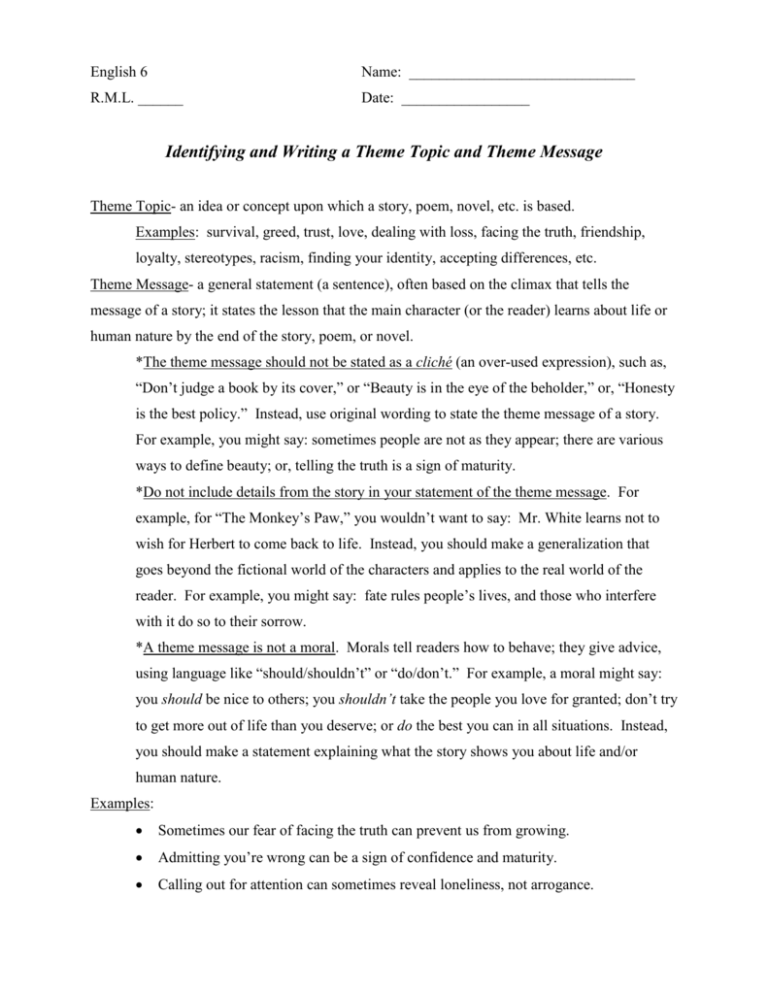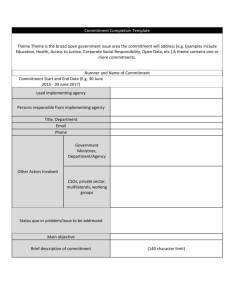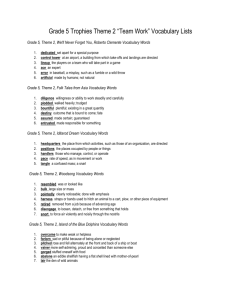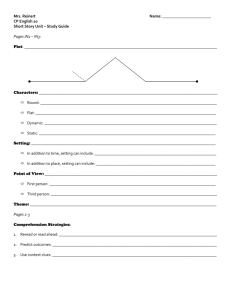Name
advertisement

English 6 Name: ______________________________ R.M.L. ______ Date: _________________ Identifying and Writing a Theme Topic and Theme Message Theme Topic- an idea or concept upon which a story, poem, novel, etc. is based. Examples: survival, greed, trust, love, dealing with loss, facing the truth, friendship, loyalty, stereotypes, racism, finding your identity, accepting differences, etc. Theme Message- a general statement (a sentence), often based on the climax that tells the message of a story; it states the lesson that the main character (or the reader) learns about life or human nature by the end of the story, poem, or novel. *The theme message should not be stated as a cliché (an over-used expression), such as, “Don’t judge a book by its cover,” or “Beauty is in the eye of the beholder,” or, “Honesty is the best policy.” Instead, use original wording to state the theme message of a story. For example, you might say: sometimes people are not as they appear; there are various ways to define beauty; or, telling the truth is a sign of maturity. *Do not include details from the story in your statement of the theme message. For example, for “The Monkey’s Paw,” you wouldn’t want to say: Mr. White learns not to wish for Herbert to come back to life. Instead, you should make a generalization that goes beyond the fictional world of the characters and applies to the real world of the reader. For example, you might say: fate rules people’s lives, and those who interfere with it do so to their sorrow. *A theme message is not a moral. Morals tell readers how to behave; they give advice, using language like “should/shouldn’t” or “do/don’t.” For example, a moral might say: you should be nice to others; you shouldn’t take the people you love for granted; don’t try to get more out of life than you deserve; or do the best you can in all situations. Instead, you should make a statement explaining what the story shows you about life and/or human nature. Examples: Sometimes our fear of facing the truth can prevent us from growing. Admitting you’re wrong can be a sign of confidence and maturity. Calling out for attention can sometimes reveal loneliness, not arrogance.








